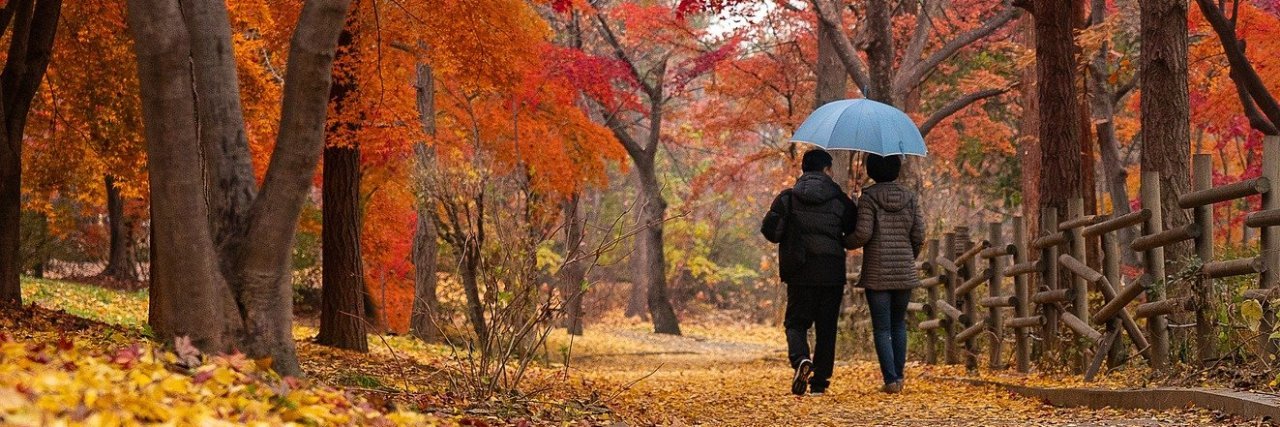Why I’m Scared of COVID-19 Lockdown Ending as a Trauma Survivor
As we reached the midpoint of December, news broke that the Pfizer vaccine had received approval from governments and regulating bodies around the world; after nearly a year of shutdowns, deaths and isolation due to the coronavirus (COVID-19), the prospect of breathing freely again appeared possible. Broadcasters and market analysts, working professionals stuck behind screens and children missing school friends all celebrated the prospect of change. In truth, 2020 impacted people across social classes, race, gender and belief in profound ways; the notion that we can collectively move forward is worthy of the grandest celebrations, even as we grieve the immeasurable losses of this period.
So why do I feel so anxious about returning to the world of before — back to connection, entertainment and productivity? If I’m being completely honest, I don’t want to go back at all.
Of course I am happy that an end of the terror and suffering brought on by this virus is in sight, but I must also admit that these months at home have been a gift I could not have imagined.
Before the pandemic, I lived the jam-packed life of a professional and parent, wearing both hats and grasping at “good enough” with each. I love my profession; I treasure my children. In the months leading up to the shutdown, I found myself utterly exhausted, trying to squeeze the last drop of meaning from each day, throwing myself into my career as an educator and spending myself in the service and care of my two children each evening. Somewhere in there, I hoped to find time to connect with my partner, my best friend and the love of my life, but far too often what we had to offer each other was the dregs of our depleted selves.
Beyond the hamster wheel of 21st century American life, another force drained at me, pushed me into periods of survival, of settling rather than striving. I have complex post-traumatic stress disorder (C-PTSD), a condition that has haunted most of my life, but one that I only understood late into my adult years. I’ve written frequently of the chronic trauma I experienced in childhood and won’t explore that here, but as a 36-year-old father, educator and husband, I am only now learning to care for myself in a way that is sustainable and life-giving. Writing has been a huge part of that.
During the pre-pandemic years, my C-PTSD typically manifested in panic attacks, addiction, wild swings between anxiety and numbing depression. While I’ve managed to thrive and achieve, I must confess to being a poster child of the “Stanford Duck Syndrome;” calm on the surface, legs desperately treading water beneath.
While none of this has entirely disappeared — sadly, there are no magic wands for healing trauma — this year in lockdown has allowed me to escape, to slow down and connect with myself, to enter the sabbatical I often dreamed about, but knew impossible with the demands upon someone in my fiscal, professional and familial position. Working remotely as a teacher has meant more opportunity to invest in the places I’ve been sorely lacking. It has meant cribbage at the kitchen table with my partner, extra Fortnite games with my children when we would have been sitting in traffic, long walks through my neighborhood where my thoughts could coalesce into something other than the fragmented mess they often occupy. It has even meant time to go to that virtual meeting in support of a child with high learning needs that I might not have been able to attend in person. In every meaningful way, both professionally and personally, lockdown has meant having additional resources to be the person I want to be.
Lockdown has been a privilege, and I know that I’m fortunate to be able to say that. I’ve been able to work from my computer, safe from the reach of the virus, secure financially. Not everyone has had this available to them and for many Americans, the shutdown has meant economic ruin. I mean no disrespect and I humbly acknowledge my privilege. I can only write from the perspective of my own transformation, my personal journey towards realizing something better is possible.
Now I know there are extroverts reading this who feel ready to climb the walls of their bedrooms just for a chance at escaping the isolation of lockdown; your feelings are valid. Though we have very different experiences of the world, I recognize that for many, this pandemic has hit in a way that introverts like myself have not encountered. However, as a notorious introvert and complex trauma survivor, I also have felt the experience of living in an environment that I did not belong, one where everyone else appeared to thrive, and I struggled to breathe.
This is something I suspect many trauma survivors have known, walking in a world that appears alien, that feels like being the only runner with iron shoes in an immensely important race. Lockdown was my realm. For once, the whole, whole world was experiencing the anxiety, despair and confusion with which I lived each day; now I didn’t feel like the only one. News broadcasts and Twitter hashtags documented the collective trauma we all felt; and suddenly, I had a community, not a silent struggle. I belonged.
I’m not sure what going back looks like; I know that things won’t be exactly the same. I’m optimistic that some of the lessons I’ve learned from lockdown will follow me into tomorrow. But I’m also scared. Overwhelmed. Angry even. And right now I’m giving myself permission and time to feel those emotions, to write and walk, to spend time with the ones I love most. These are the treasures of 2020 that I have unearthed at great cost. I will not bury them again.
Image by Chulmin Park from Pixabay

